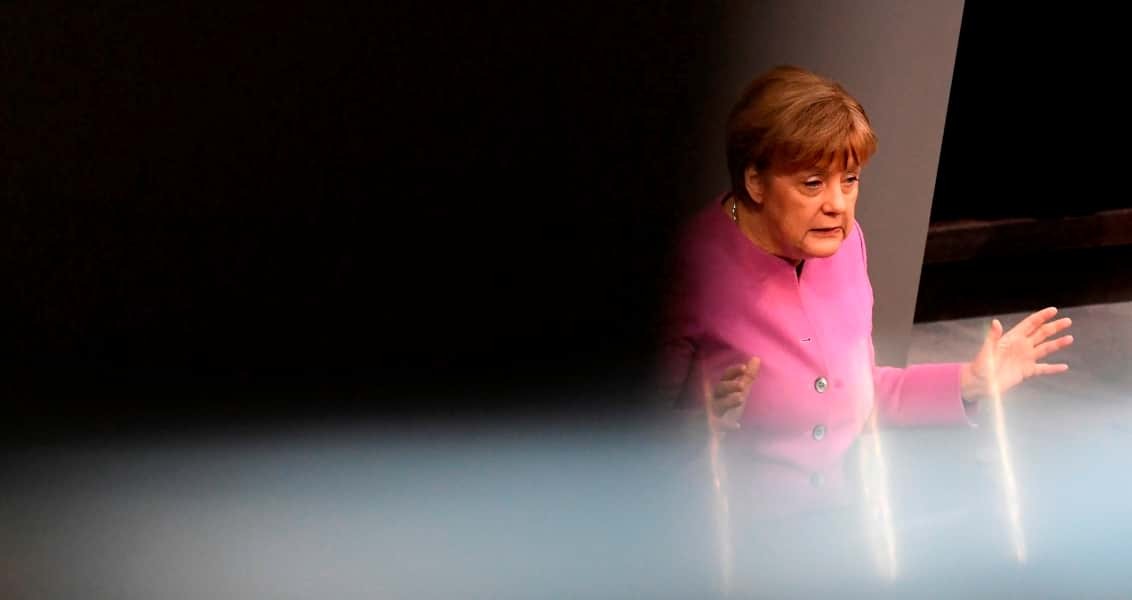
Europe's New Politics of Fear of Turkey
Mainstream European politicians have created a new politics of fear of Turkey and Turks in Europe, and at every opportunity, European media helps them
Share
A new fear is being pumped throughout Europe. Germans are foremost among those creating this fear, which is in truth not real fear, but a politics of fear. Unfortunately, politics of fear have overrun Europe recently. The question now is whether Europe is surrendering its political rationality to this politics of fear or if its political rationality is creating it.
No, I am not speaking about Islamophobia, although perhaps this new fear being created has something to do with it. This fear is very different from Islamophobia – it is a process of creating fear with societal and political results as much as cultural ones. The fear I am speaking of is fear of Turkey. Yes, creating a fear of Turkey has come to be one of the mainstays of European politics.
I have tried to express this many times before. Like Turkey's long-standing identity crisis, Europe is now experiencing a deep-seated crisis of identity over Turkey. We saw the effects of this crisis from the middle of the 2000s, following the start of negotiations for Turkey's full membership in the EU. However, after 2010, a new phase began. Starting as anti-Recep Tayyip Erdoğan sentiment, this phase then took on the shape of fear of Erdoğan. And such a point was reached that fear of Erdoğan took the shape of fear of Turkey and this fear began to overrun Europe.
Europe's internal discrepancies and hardships have been part of the reason for the appearance of this. The 2008 economic crisis, the disintegration of liberal politics, the discourse of globalization losing its shine and the rising extreme right have put the perception of Turkey as a strategic partner in complete disarray. Political developments in Turkey have also sped this process along. The political transformation experienced in Turkey after 2000, and its increasing institutionalization following this was not regarded positively in European capitals. This political transformation was a reflection of the process of societal transformation, which directly targeted the Westernization paradigm affecting state policy for nearly 200 years. In other words, Turkey's administration wanted a rational relationship based on mutual benefits with Europe rather than one of passion. This brought with it the transformation of every conflict of interest into a political crisis. Of course, someone can make reference to the historical grounds and cultural dimensions of Europe's fear of Turkey. But I think there is a need to consider this fear from its social and political dimensions rather than with essentialist explanations. There is a planned production of politics of fear in front of us, and this type of politics harms European countries' relationship with Turkey, Germany first among them. I emphasize Germany because since 2008, Germany has been pushing France to the side and attempting to become the leader of this new Europe. It was doing this through the support of the U.S. during President Barack Obama's administration and it now intends to continue doing so by with its own resources. Or it feels as if it has to. I'm not even touching on the historical fears this will create in Europe.
This politics of fear is regarded with great interest in this new Germany-led Europe. The production of fear of Turkey is among the central elements of this politics. While at the beginning, politicians of the extreme right were considering this production of fear of Turkey as a political opportunity, at the point we have arrived today, mainstream European politicians regard the production of fear of Turkey as a political necessity.
Undoubtedly, the most important part of the politics of fear being created vis-a-vis Turkey are Turkish-origin people living in Europe. For a long time, because there have been perceived problems in their integration into European societies, Turks who are also in Erdoğan's political orbit and who have been kept under watch are now evaluated as elements that could throw Europe's social stability into danger. European media pumps this fear at every opportunity and politicians are tools for this.
Another element has been added to the creation of this politics of fear alongside Erdoğan's administration and the presence of Turks in Europe. This is Turkey moving together with Russia and creating pressure on Europe. We see that this fear is directed by two themes. The first is Turkey's deal with Russia to buy S-400 missile defense systems and the idea that this will de facto bring Turkey out of NATO. The second is that Turkey will move to redraw the borders of the Balkans with Russia and that they will encourage their proxies in the Balkans, Serbia and Albania. There is a Turkish saying: Fear does not help with death. I want to finish here by slightly changing this saying: Politics of fear does not help politics, especially not foreign policy.
[Daily Sabah, July 27, 2017]
Tags »
Related Articles








